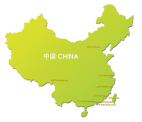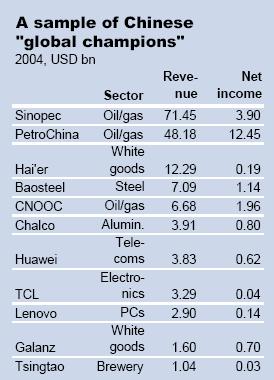China's 20 Best Brands

From BusinessWeek:
"A Lenovo ad campaign will soon appear in 200 countries, and the company is conducting an "Olympic & Lenovo Thousand County Tour" across the mainland to trumpet its ties to the sporting bonanza. "The brand will be a flag that leads the company as it goes forward," says Lenovo Chairman Yang Yuanqing.
The PC maker may be the highest-profile example of China's emerging brand power, but it's far from the only one. Air China, China Mobile, telecom equipment maker ZTE, and dozens of other companies are in the vanguard of China's growing number of powerful brands. They hope to emerge as truly global players—dominant at home and strong enough to muscle in on consumer awareness abroad."
BusinessWeek Slide Show: China’s Best Brands, click here.































